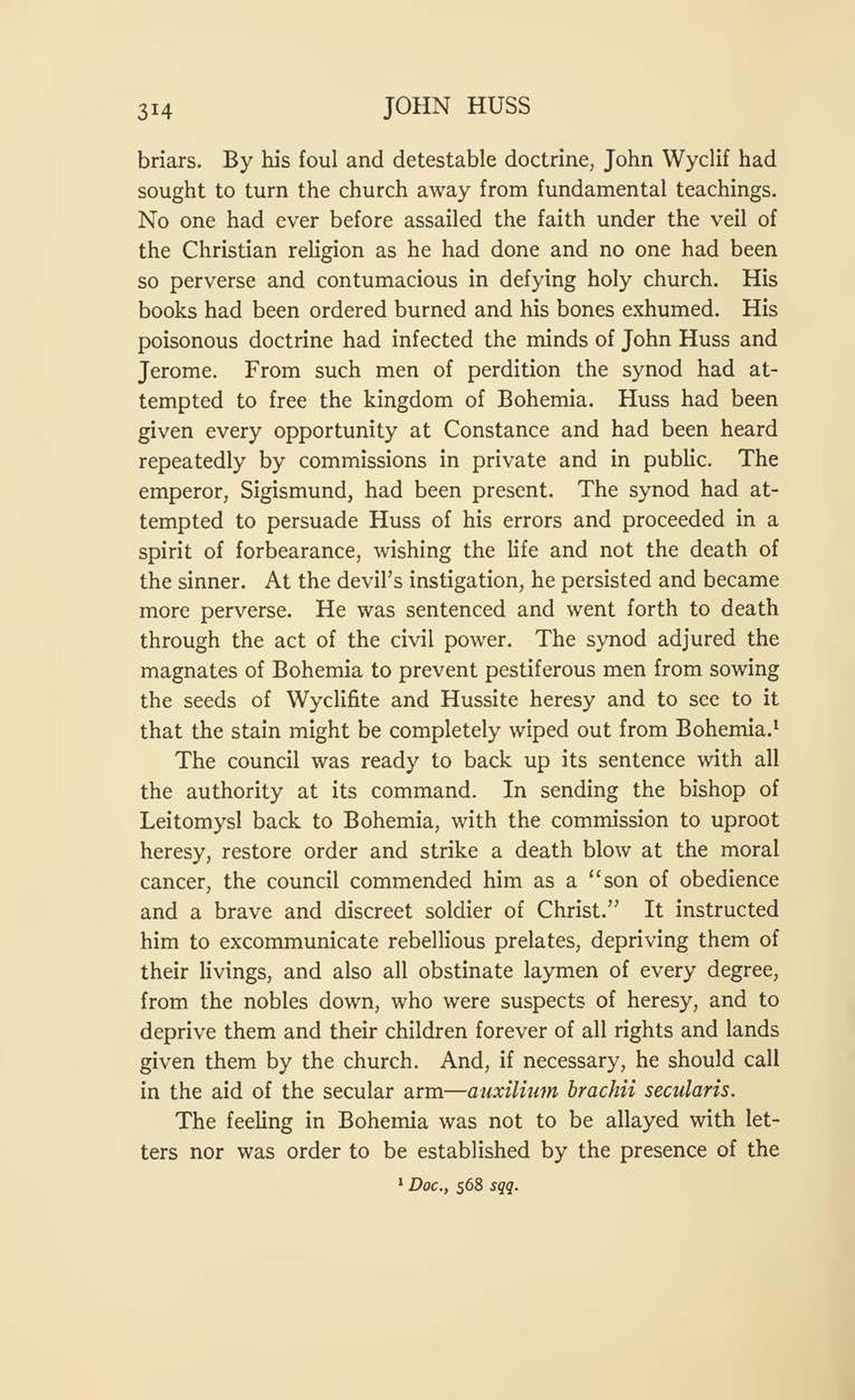briars. By his foul and detestable doctrine, John Wyclif had sought to turn the church away from fundamental teachings. No one had ever before assailed the faith under the veil of the Christian religion as he had done and no one had been so perverse and contumacious in defying holy church. His books had been ordered burned and his bones exhumed. His poisonous doctrine had infected the minds of John Huss and Jerome. From such men of perdition the synod had attempted to free the kingdom of Bohemia. Huss had been given every opportunity at Constance and had been heard repeatedly by commissions in private and in public. The emperor, Sigismund, had been present. The synod had attempted to persuade Huss of his errors and proceeded in a spirit of forbearance, wishing the life and not the death of the sinner. At the devil’s instigation, he persisted and became more perverse. He was sentenced and went forth to death through the act of the civil power. The synod adjured the magnates of Bohemia to prevent pestiferous men from sowing the seeds of Wyclifite and Hussite heresy and to see to it that the stain might be completely wiped out from Bohemia.[1]
The council was ready to back up its sentence with all the authority at its command. In sending the bishop of Leitomysl back to Bohemia, with the commission to uproot heresy, restore order and strike a death blow at the moral cancer, the council commended him as a “son of obedience and a brave and discreet soldier of Christ.” It instructed him to excommunicate rebellious prelates, depriving them of their livings, and also all obstinate laymen of every degree, from the nobles down, who were suspects of heresy, and to deprive them and their children forever of all rights and lands given them by the church. And, if necessary, he should call in the aid of the secular arm—auxilium brachii secularis.
The feeling in Bohemia was not to be allayed with letters nor was order to be established by the presence of the
- ↑ Doc., 568 sqq.
